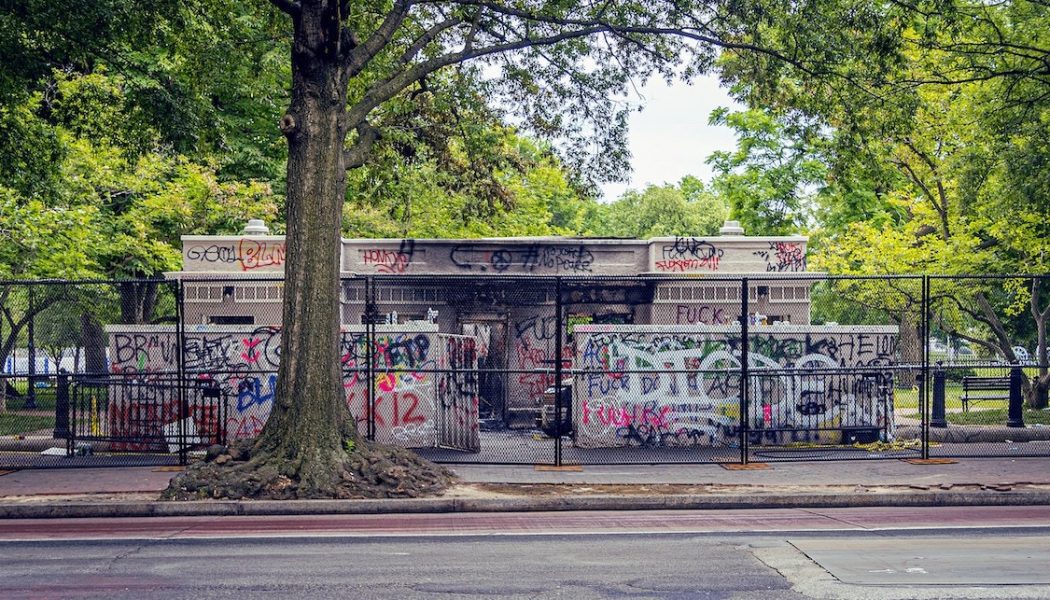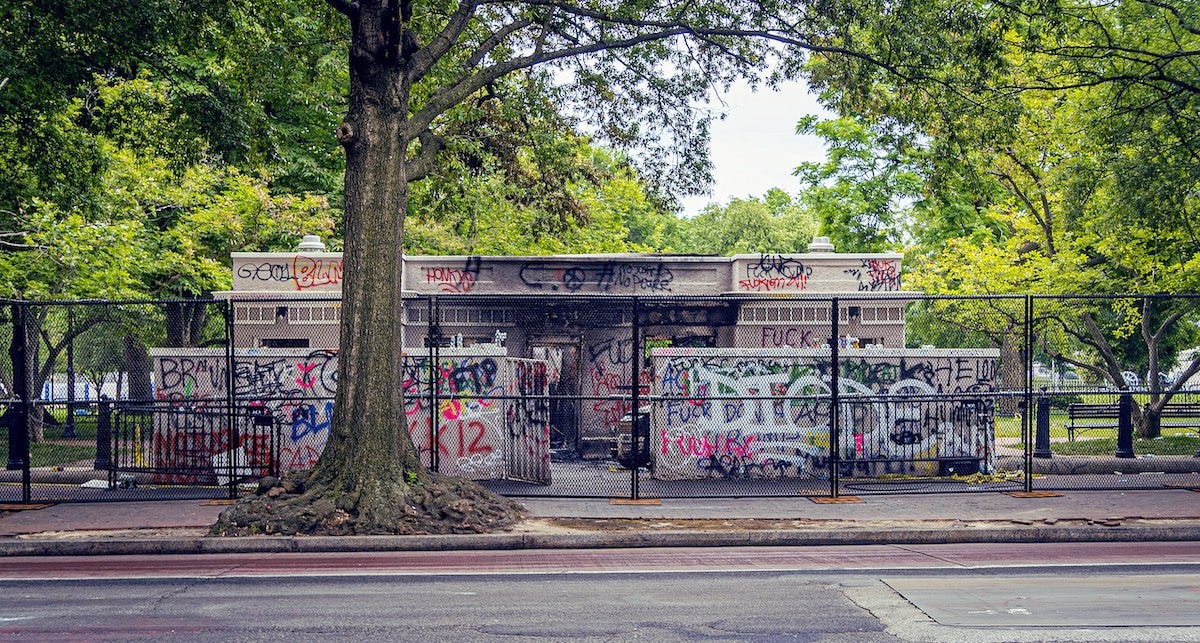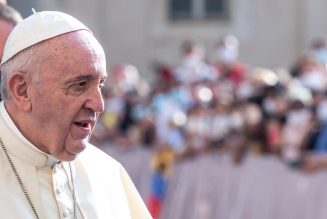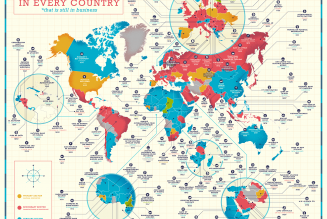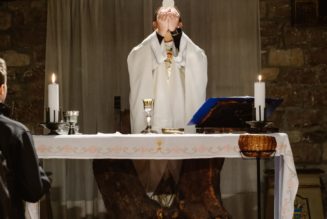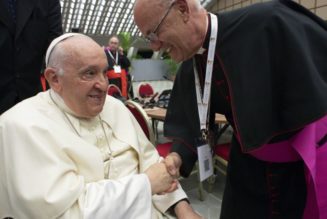It will take a while, I think, for most of us to be able to understand and articulate what it felt like to watch men in berzerker outfits and body paint run amok inside the U.S. Capitol building, to see a man making off with a podium bearing the seal of the House Speaker, to see police turn tail and run as a mob of angry Americans broke down barricades, scaled walls, and breached a building we have spent our lives believing is impenetrable.
It will also take a while to understand just what it means that the president of the United States, who encouraged the mob’s march on the building, took pains to express his love for the marauders, and nod to the righteousness of their cause, even as he instructed them to go home.
Wednesday’s political violence is symptomatic of a dismal constellation of problems plaguing not only American political, cultural, and economic life, but plaguing individual American hearts across the ideological spectrum. We are, as a people, facing a pandemic of some deep sickness that none of us has yet fully understood.
There is a group of people – Catholics included – who after yesterday’s events took to social media to point out that riots across America this summer did more damage than did yesterday’s incursion, and to condemn those who spoke out against the Trumpist violence without first decrying the violence of BLM, antifa, and the CHAZ.
It is true that we have faced a year of shocking political violence across America. But in that light, the message that “they started it” seems both unhelpful and symptomatic of the same disease.
And Catholics have no better diagnosed the American disease than has anyone else, and in fact, vast swaths of the Church seem infected by it.
This is manifest in several iterations: One is the kind of relativistic Catholicism embodied by incoming President Joe Biden, which takes up some of the symbols and shibboleths of the faith as a kind of tribal identity, while comfortably rejecting Catholic doctrine on abortion as a means to power.
The other is the kind of political messianism espoused by Archbishop Carlo Vigano, which jumbles temporal political aims and far-reaching conspiracy theories with Christian identity, confusing partisanship with membership in the mystical body of Christ.
No matter their “team,” Catholics have become as prone as everyone else to seeing the world through an entirely political lens, which seems to make political victories a near divine imperative, and the mission of authentic Christian life.
The U.S. bishops’ conference has tried to carve out for itself a somewhat neutral space, releasing statements on issues of import to both liberals and conservatives, but, given that the majority of its released statements pertain to legislative or policy issues, it seems as much to be preoccupied by politics as are the rest of us.
The danger for the Church is that temporality – the urgent tyranny of the now – replaces the frameworks of vision that should be most important for believers- the framework of the second coming of Christ, and the framework of our inevitable, and soon approaching, judgment.
In the framework of eschatology, the priorities of the Christian life are defined simply: mystical union with God in prayer and contemplation, obedience to divine mandates no matter the cost, and the proclamation of a Kingdom more enduring, and more important, than any government seated in Washington, DC.
That framework is, for Christians, curative – it sets direction, and gives purpose and identity that is otherwise being sought in tribalism and political obsession. It tells us what we are about – Christ Jesus, crucified and resurrected – and it reminds us that all else is fleeting.
But the eschatological priority of evangelization is also the most meaningful thing the Church has to offer to the fractured and suffering people of the United States — both in the hereafter, and in the here and now.
If January 6 affords any moment of self-reflection or course correction, it is worth asking whether, for Catholics, it might become a moment to recognize the urgent priority of evangelization – of working zealously, strategically, and tirelessly, for the conversion and formation of hearts- which has the potential to achieve a kind of social transformation that far exceeds the capacity of policy priorities.
The political agenda of incoming president Joe Biden threatens seriously the religious liberty of believers, threatens to make them complicit in federal funding of abortion, and threatens to impose a social vision at odds with the Gospel. The bishops will rightly blanch at that, rightly make efforts to mitigate the damage, and rightly make efforts to teach on those crucial issues.
But Biden’s troubling political agenda, like Trump’s, and the public support for both, is evidence of a people not formed by the Gospel to think about the common good. And the fractured, divisive, escalating tribalism and hatred between red and blue is evidence of a people not formed in their hearts by the Prince of Peace. So is the fracturing of the family, the sin of racism, the ubiquity of pornography, the marginalization of the poor, and the death of the unborn.
Put more simply, if few of us really know God, is it any wonder we treat each other so hellishly?
An eschatological framework doesn’t ignore the political order, is not indifferent to suffering and injustice, but it recognizes the primacy of the order of grace. An eschatological vision sees that chaos, depravity, division, and even violence are the ordinary consequences of fallen humanity, and sees that, no matter the specific maladies afflicting souls or cultures, repentance and conversion are the only lasting antidotes, and the only ones that finally matter.
Evangelization, the Church teaches, precedes other kinds of public activity, because repentance is a necessary precondition to enduring justice.
Pope Francis’ Evangelii gaudium emphasizes the lens of evangelization as the framework for other forms of social engagement. And John Paul II’s vision of the new evangelization – and in fact the methodology of his own ministry – hinge on the idea that individual conversions precede cultural transformation.
After it has become more evident that American culture is not Christian culture, the question now facing Catholics, and especially Catholics bishops, is whether preaching Christ crucified has been the hallmark of the Church’s life, and if not, what needs to change.
The practical consequences of an ecclesial life that prioritizes evangelization in a post-Christian culture are considerable, and require serious analysis: they require thinking about the form and structure of parishes and other institutions, about the role and witness of ecclesial movements, about the allocation of money and other resources, about methodologies of proclamation, catechesis, and Christian living.
But at a fundamental level, prioritizing evangelization requires grappling with a question few like to consider: Do we really believe that God can work miracles, transform hearts, and turn even the Church’s persecutors into her greatest saints?
The question for Catholics right now is the only one finally matters: Do we really believe in grace?
Join Our Telegram Group : Salvation & Prosperity
